Why is My LG Refrigerator Only Cooling to 50 Degrees? Fixes
We may earn affiliate fees for purchases using our links (at no additional cost to you).
Is your LG refrigerator only cooling to 50 degrees?
Don’t settle for lukewarm beverages and spoiled food! A malfunctioning refrigerator can be a major inconvenience but fear not, we’re here to help.
Our article will explore the possible causes of this cooling problem and provide you with practical solutions.
Here’s what you need to do to go from lukewarm drinks to a fully functioning fridge!
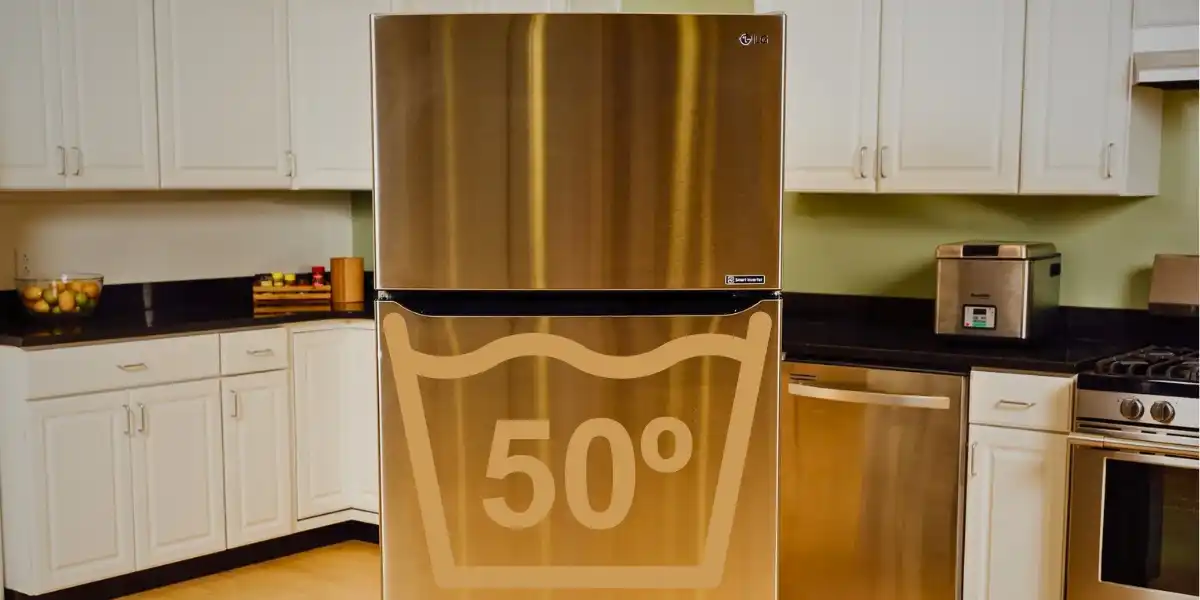
Why is My LG Refrigerator Only Cooling to 50 Degrees?
Several factors could explain why your LG refrigerator cools only to 50°F (10°C). Here are a few possible causes:
Temperature settings:
Check the temperature settings on your refrigerator. Make sure it is set to a colder temperature.
The ideal temperature for a refrigerator is typically between 35 and 38 degrees Fahrenheit (1.7 to 3.3 degrees Celsius).
Door seal:
Inspect the door seal or gasket of your refrigerator. The refrigerator will not cool efficiently if it is damaged or not sealed properly.
Clean the seal and ensure it is making good contact with the refrigerator body.
Blocked vents:
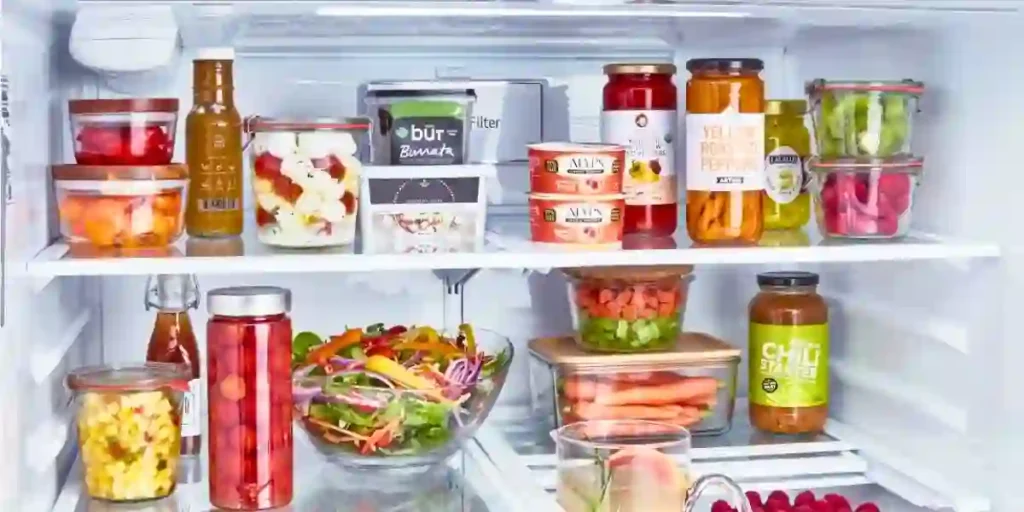
Check if the vents inside the refrigerator are blocked or obstructed by food items. Proper air circulation is essential for cooling.
Rearrange items if necessary to allow the cool air to flow freely.
Condenser coils:
Dirty or dusty condenser coils can restrict heat dissipation, resulting in poor cooling performance.
The coils are typically found behind or underneath the refrigerator; a vacuum cleaner or coil brush will do.
Faulty thermostat:
The thermostat regulates the temperature inside the refrigerator. If it is malfunctioning, it may not be signaling the cooling system properly.
Consider contacting a technician to diagnose and potentially replace the faulty thermostat.
Refrigerant leak:
A refrigerant leak can cause insufficient cooling. If you suspect a leak, you will need professional assistance to locate and repair it.
Refrigerant handling requires specialized equipment and training, so it’s best not to attempt it yourself.
Troubleshooting Steps for Improving Refrigerator Cooling
Here are some troubleshooting steps you can take to improve the performance of your refrigerator:
Temperature settings:
Check the temperature settings on your refrigerator and ensure they are set correctly.
The ideal temperature range for a refrigerator is typically between 35 and 38 degrees Fahrenheit (1.7 to 3.3 degrees Celsius). Adjust the settings if necessary.
Clean the condenser coils:
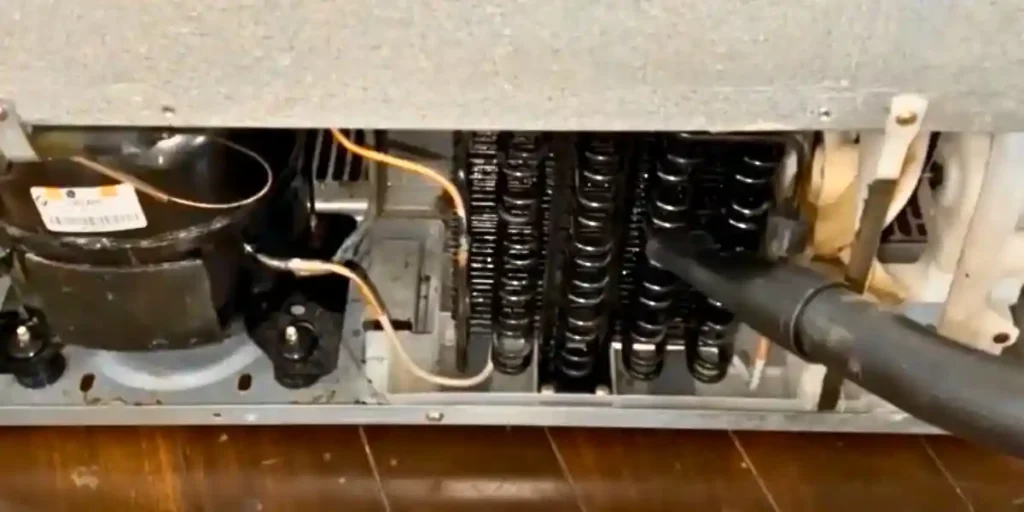
In the back or underneath the refrigerator, the condenser coils can accumulate dust and debris.
This buildup hampers heat dissipation and can lead to poor cooling. Use a vacuum cleaner or a brush specifically designed for coil cleaning to gently clean the coils.
Check the door seal/gasket:
Ensure the door seal is not damaged or worn to ensure that cold air does not escape from the refrigerator.
Ensure the seal makes proper contact with the refrigerator body when closed with warm, soapy water.
Organize and declutter:
Poor air circulation inside the refrigerator can affect its cooling efficiency. Ensure that food items are not blocking the vents or air pathways within the refrigerator.
Properly organize and arrange items to allow the cool air to circulate freely.
Avoid overloading:
Overloading the refrigerator with a large amount of food can inhibit proper airflow and cooling.
Air can circulate better if you remove any unnecessary items or redistribute your load.
Check the evaporator fan:
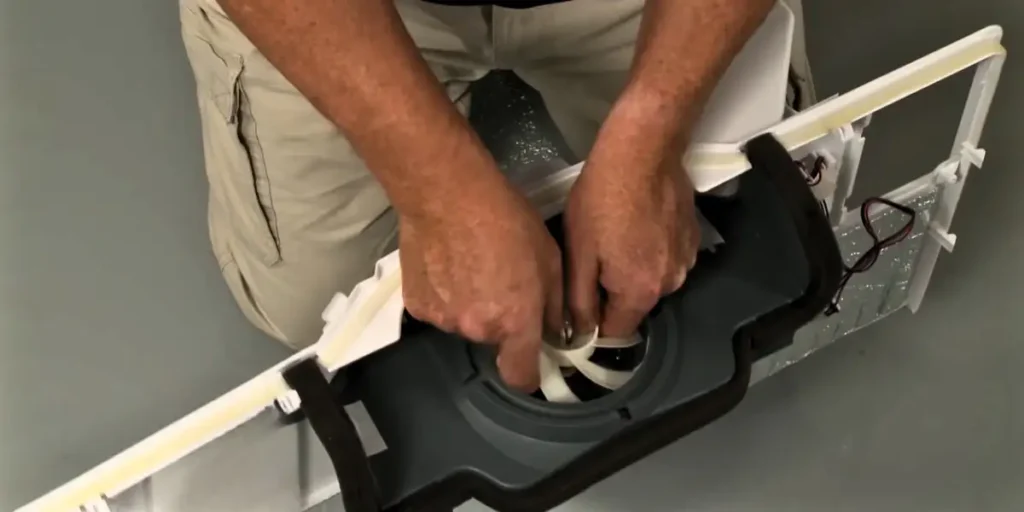
The evaporator fan circulates cold air throughout the refrigerator. If it is not functioning correctly, it can impact cooling performance.
If the fan does not run when the refrigerator operates, it may need to be replaced. Contact a technician for assistance.
Monitor the location:
The ambient temperature and the placement of the refrigerator can affect its cooling efficiency.
Keep the refrigerator away from direct sunlight, heat sources, and other heat-generating appliances.
Allow time for cooling:
Give the refrigerator some time to stabilize after you make adjustments or perform maintenance.
It may take a few hours for the cooling system to adjust and cool the contents properly.
Factors Affecting Refrigerator Cooling Performance
Here are some key factors that can impact refrigerator cooling performance:
Temperature settings:
Incorrect temperature settings can lead to inadequate cooling. Make sure the temperature controls are set to the appropriate levels recommended by the manufacturer.
Setting the refrigerator temperature too high or too low can affect its ability to cool effectively.
Air circulation:
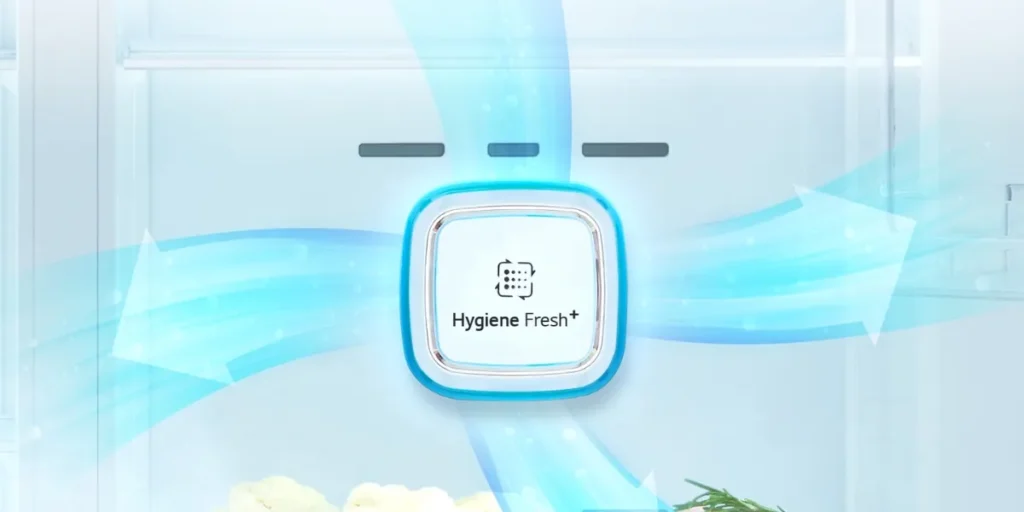
Proper air circulation is crucial for efficient cooling. A refrigerator with blocked vents or obstructions can result in uneven or inadequate cooling.
The vents should be free of obstructions and there should be enough space for air to circulate.
Door seal/gasket:
Damaged or worn-out door seals can cause air leakage, causing the refrigerator to work harder.
Inspect the door seal for any cracks, tears, or gaps. Clean the seal regularly and replace it if necessary to ensure a tight seal when the door is closed.
Condenser coils:
Condenser coils, commonly found at the back or underneath the refrigerator, dissipate heat.
Dirty coils can’t release heat efficiently, resulting in poor cooling performance. Clean the coils regularly to ensure optimal heat dissipation.
Refrigerant levels:
The refrigerant is responsible for absorbing and releasing heat within the cooling system.
If there is a refrigerant leak or if the levels are low, the refrigerator may struggle to cool properly.
A qualified technician should address any refrigerant-related issues.
Evaporator fan:
The evaporator fan circulates cold air throughout the refrigerator. If the fan malfunctions or stops working, it can result in inadequate cooling.
Check if the fan is running properly, and if not, it may need to be repaired or replaced.
Overloading and organization:
Cooling can be hindered by overloaded refrigerators or poorly organized items. Ensure that there is sufficient space for air to circulate freely around the stored items.
Proper organization can help maintain consistent cooling throughout the refrigerator.
Ambient temperature and location:
The room temperature where the refrigerator is located can affect its cooling.
A refrigerator that is placed near heat sources, such as ovens or direct sunlight, may take longer to cool.
Place the refrigerator in a well-ventilated area with an appropriate ambient temperature.
Tips for Maintaining Optimal Cooling in Your LG Refrigerator
To maintain optimal cooling in your LG refrigerator, here are some tips you can follow:
Clean the condenser coils:
Regularly clean the condenser coils to remove dust and debris. Dirty coils can hinder heat dissipation and affect cooling efficiency.
Clean the coils according to the manufacturer’s instructions in your refrigerator’s manual.
Keep the refrigerator clean:
Clean the interior of the refrigerator regularly to prevent the buildup of spills, food residue, and mold.
Use mild detergent and warm water to clean the shelves, drawers, and walls. Ensure that the seals around the doors are also clean and free from debris.
Monitor the temperature settings:
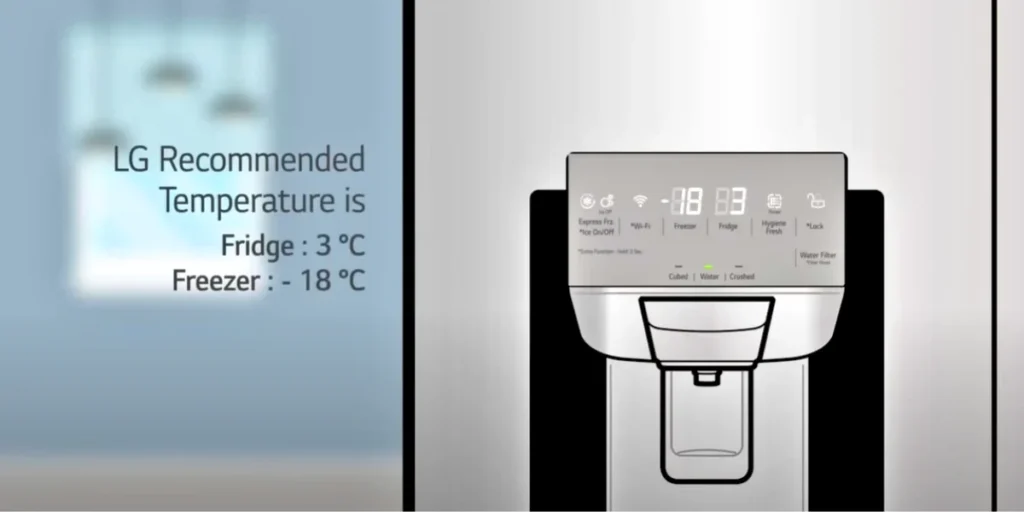
Check the temperature settings periodically to ensure they are set to the recommended levels.
Adjust the settings as needed to maintain the desired cooling temperature. Avoid setting the temperature too low as it can lead to excessive energy consumption.
Allow for proper airflow:
Avoid overpacking the refrigerator, as it can block airflow and hinder cooling. Arrange items in a way that allows air to circulate freely around them.
Ensure that there is space between items to promote efficient cooling.
Check the door seals/gaskets:
Inspect the door seals or gaskets regularly to ensure they are intact and sealing properly.
Damaged or worn-out seals can cause air leakage, leading to poor cooling performance. Clean the seals regularly and replace them if necessary.
Avoid frequent door openings:
Limit the frequency and duration of opening the refrigerator door. Open doors allow cold air to escape and warm air to enter, increasing the cooling system’s workload.
Plan your access to the refrigerator to minimize unnecessary door openings.
Maintain proper ventilation:
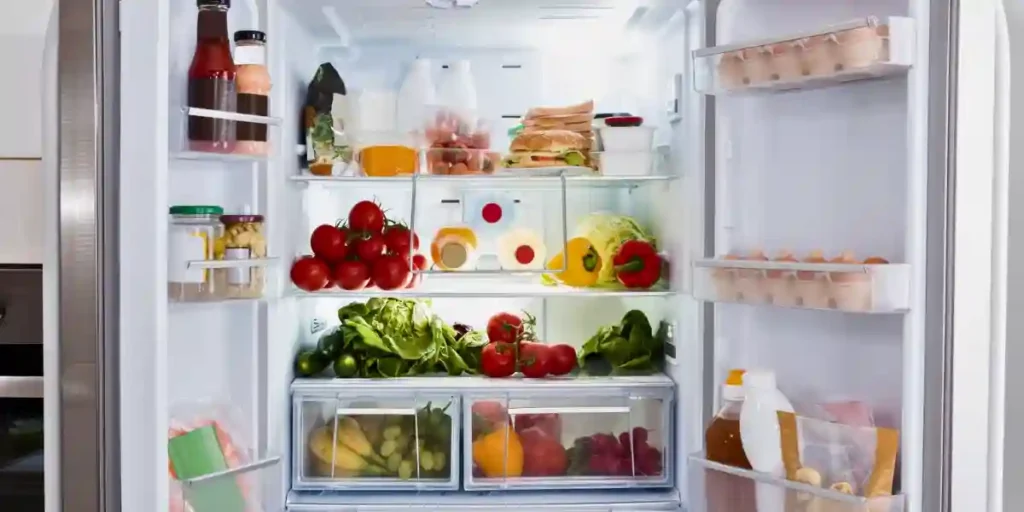
Ensure that there is adequate space around the refrigerator for proper ventilation. Avoid placing the refrigerator in a tight, enclosed space or against the wall.
Allow at least a few inches of clearance on all sides to promote airflow and prevent overheating.
Regularly defrost if needed:
Make sure you defrost your LG refrigerator regularly or whenever excessive ice builds up. Excessive ice can hinder cooling and reduce the available storage space.
Avoid placing hot items in the refrigerator:
Refrigerate hot food or beverages after they have cooled to room temperature. The internal temperature of the refrigerator can rise when hot items are put inside.
Schedule professional maintenance:
Consider scheduling periodic maintenance checks with a professional technician.
They can inspect and service your LG refrigerator to ensure that all components are working properly. Address any potential issues before they become major problems.
Frequently Asked Questions About LG Refrigerator Cooling Issues
How Often Should I Clean The Condenser Coils On My LG Refrigerator?
Regular cleaning helps maintain optimal cooling performance and prevents dust and debris buildup.
Can I Fix Refrigerant Leaks In My LG Refrigerator By Myself?
It is not recommended to attempt fixing refrigerant leaks yourself. To resolve refrigerant-related issues, contact LG customer support.
Why Is My LG Refrigerator Cooling Unevenly?
Ensure that the vents are clear and unobstructed, and arrange items for proper airflow. If the issue persists, seek professional assistance.
Conclusion
To ensure optimal cooling in LG refrigerators, clean condenser coils and organize items for proper airflow.
Avoid overloading the fridge and maintain proper ventilation. If refrigerant leaks or faulty components persist, contact LG customer support.
Keep your refrigerator running smoothly for efficient cooling.